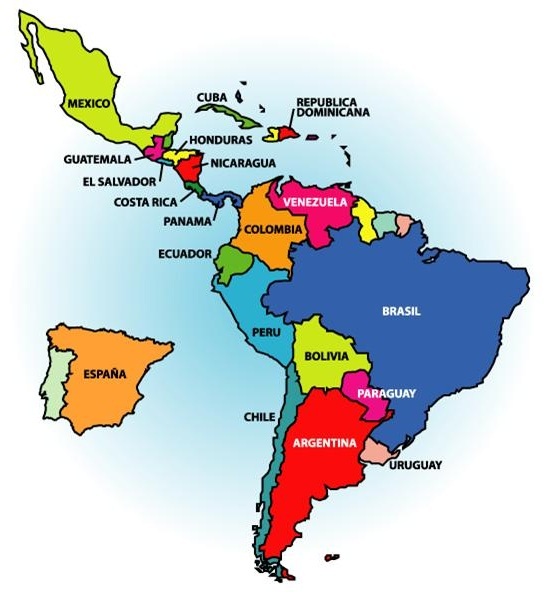Two separate reports were made available today concerning mobile broadband services in Latin America. The short and to the point version of the story is – and certainly it should hold no surprises whatsoever – that high taxes significantly hold back economic growth and take-up of 3G mobile broadband services in Latin America.
The two reports and key findings were released by the GSMA and AHCIET. The reports are, respectively, “Mobile Telephony and Taxation in Latin America” and “Taxation and Telecommunications in Latin America.” Both reports were undertaken by Deloitte, and both reports clearly indicate that lowering the rate of taxation on telecommunications vendors would benefit the Latin American economy in non-trivial ways.
The GSMA, which produces that annual Mobile World Congress and the Mobile World Live industry portal, currently represents nearly 800 of the world's mobile operators across 220 countries. GSMA's study highlights that the mobile industry contributed an estimated $177 billion to the economies of Argentina, Brazil, Chile, Colombia, Ecuador, Mexico, Panama, Peru and Uruguay. These dollars represent 3.5 percent of the region's GDP. The GSMA study also points to the fact that mobile operators across the nine countries studied in its report employ more than 107,000 people, with approximately 890,000 people in employment across the wider mobile ecosystem in the region.
These are all positive points. However, the GSMA study also clearly demonstrates that some of the countries in the region suffer from high mobile-specific taxes. This scenario threatens both the ongoing development of the mobile industry and the take-up of innovative - and potentially very high value and high revenue-generating – new services.
AHCIET is a not-for-profit and private organization founded in 1982. It’s comprised of 50 Information and Communications Technologies companies from all over Iberoamerica (see the map below on its makeup), and is tasked with serving as the key platform to facilitate dialogue between the public and private sectors - such as, for example, international organizations, regulators and governmental authorities.

According to the results of the 11-country AHCIET report, in addition to the GDP generated by consumer payments for information and communications technology (ICT) devices and services, ICT network operations also generate expenditures within each Latin American economy, through operator investments and payments to the wider ecosystem. These activities create added value and contribute significantly to a country's GDP throughout the entire ecosystem.
Independently, both reports show that, in addition to the GDP contribution, people across Latin America enjoyed intangible benefits delivered through mobile connectivity and ICT initiatives for communications, education, health and social inclusion. Unfortunately, these positive socio-economic contributions are hugely mitigated and compromised when both consumers and mobile and ICT operators in Latin America face significant taxation burdens.
Pablo Bello, general secretary of AHCIET, puts it bluntly: "Taxes on the ICT industry act as barriers to connectivity and restricts investment, something which proves to be especially harmful for those on lower incomes."
The reports highlight a number of cases where mobile telephony is taxed more heavily than other sectors of the economy; for example, it was shown in the GSMA report that Brazil and Colombia impose higher sales taxes upon mobile consumers compared to other sectors, with consumer taxes accounting for more than a third of all charges in Brazil. Additional luxury taxes are also imposed on mobile consumption in Argentina, Mexico and Panama. Consumers in Argentina also see high taxation on handsets, which can make up more than half of the cost of owning a mobile.
Tom Philips, chief government and regulatory affairs officer for GSMA, underscores that, "Higher taxes on the mobile industry hinder the adoption of new services, such as 3G mobile broadband and M2M services, and mobile usage generally. Mobile is an important contributor to economic success and we have clearly seen that when countries have lowered mobile-specific taxes, it encourages greater usage – which boosts economic contribution, consumer benefits and government tax receipts."
Sector-specific Taxation and Negative Impact
Substantial taxation raises the cost of mobile access and hinders or prevents adoption and use by consumers. In addition to corporation taxes, mobile operators in some countries are subject to burdensome license fees, turnover taxes and other government-mandated fees such as property taxes.
In 2011, mobile operators and other players across the mobile ecosystem in Latin America paid almost $54 billion to national governments in taxes and regulatory fees. This represents an increase of 30 percent compared to $42 billion in 2008.
AHCIET's Bello makes it clear that, "Given Latin America's need for greater mobile broadband and ICT development, supportive taxation policies can be an effective tool to stimulate both demand for mobile and ICT services and promote investment. As such, governments should account for the cost of foregone benefits when evaluating taxes on mobile and ICT consumers and operators, and could consider targeted tax reductions to achieve their broadband policy objectives."
The GSMA study shows the stark differences between higher and lower rates of taxation. The penetration and usage of mobile services in Ecuador and Uruguay increased dramatically following the removal of mobile-specific taxes in 2007 and 2008. In Mexico and Panama, where taxation has recently increased, penetration and usage have both undeniably contracted.
GSMA’s Philip’s points out that, "A recent change in legislation implemented in Brazil reduced the taxation burden on M2M services. Such moves represent a positive step for the industry and further action to remove these discriminatory taxes will likely spur the development of the mobile industry, benefiting consumers and businesses and boosting the region's economy. Policymakers and governments across Latin America need to urgently come to grips with the potential of the mobile telecoms industry and the clearly harmful impact of excessive taxes."
The reports, “Mobile Telephony and Taxation in Latin America” and “Taxation and Telecommunications in Latin America” are both available online.
Edited by
Brooke Neuman  QUICK LINKS
QUICK LINKS